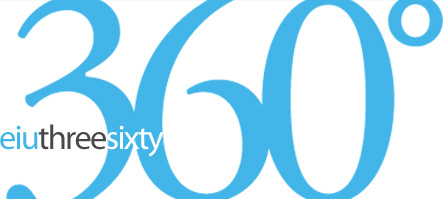With its state-of-the-art Renewable Energy Center and new M.S. in Sustainable Energy degree program, Eastern Illinois University clearly recognizes the value of being part of the alternative fuels vanguard. A great deal of research and innovation is taking place on campus, and students are getting in on the action right along with their faculty mentors.
Patrick Lyons is a perfect example of this student involvement; as part of the sustainable energy program, he has done a great deal of work with miscanthus, a tall perennial grass that can be burned as fuel for biomass gasifiers like the ones found in Eastern’s REC.
Specifically, Lyons has been experimenting with ways to more effectively convert miscanthus into a pellet form for delivery into the gasification units. Last semester, he dug into the grass’s moisture content -- finding ways adjust that moisture content and thereby increase the durability of pellets.
“I was actually able to improve the quality of the pellets,” said Lyons, whose interest was sparked by a practicum experience at the REC last year. “When I first received the material, it came in around 9 percent moisture content. That wouldn’t even pelletize; I couldn’t make any pellets from that.
“So I raised the moisture content and I was actually able to increase the durability to 93 percent without any binding agent. That was incredible. I never thought I would be able to do that.”
Now the focus has shifted to glycerol and the ways this chemical could be employed to the pelletizing process, helping a miscanthus pellet pack more punch without increasing in size.
“A pellet mill essentially uses pressure to force material through a die, and that will create pellets,” explained Lyons. “The significance of the glycerol is that it lubricates the die and allows the miscanthus to densify, which means the pellets will have more material per area.”
Denser pellets are also more durable, creating less dust when burned.
“If dust is introduced into the system, it can combust,” said Lyons. “It would be very detrimental for our facility here. If we have dust in the system, it can actually ruin the boilers. Because the glycerol is being added, we’re improving the durability.”
EIU’s system isn’t currently set up to burn these pellets
“Our system isn’t specifically set up to handle pellets right now; it’s made to handle wood chips. But those sort of modifications are something to look for in the future.
We’re working with the pelleting machinery and testing it just based on properties of pellets. We haven’t actually done any research with miscanthus in our gasifier.
Lyons says the original idea for utilizing glycerol came because of faculty member Dan Johnson’s work with biodiesel in the Department of Biological Sciences; glycerol is a byproduct of biodiesel production.
“For every 10 gallons of biodiesel, roughly one gallon of glycerol is produced,” said Lyons. “Right now, with the current demand, glycerol is already exceeding this demand. With the new renewable fuel standards in the United States, the demand for biofuels in increasing. Thus, there will be more glycerol being produced.”
Essentially, biodiesel producers are finding themselves with more glycerol than they know what to do with. It has some uses with soaps, lotions and other cosmetics, but a good deal of it ends up as nothing but waste … waste that costs to dispose of. Any alternative uses for it could prove most useful.
For Lyons, who has worked closely with Dr. Isaac Slaven and Dr. Peter Ping Liu during his research, the experience has taught him a great deal.
“It has been an interesting ride, to say the least,” said Lyons. “I have definitely learned a lot more than I ever expected to.
“Going into the fall semester of my senior year, I was a construction major out of this department. I had talked to Dr. Liu right when the sustainable energy program was introduced. Since then, my life has drastically changed. My work ethic has drastically changed. I’ve never worked this hard in my life for anything, but it has been really beneficial.
“I really think sustainable energy is going to impact the world. It has to. We’re facing a lot of health issues and global issues as far as greenhouse gas emissions and fossil fuel prices. Alternative fuels need to be developed and utilized before we’re going to get any sort of energy security in the near future.”









